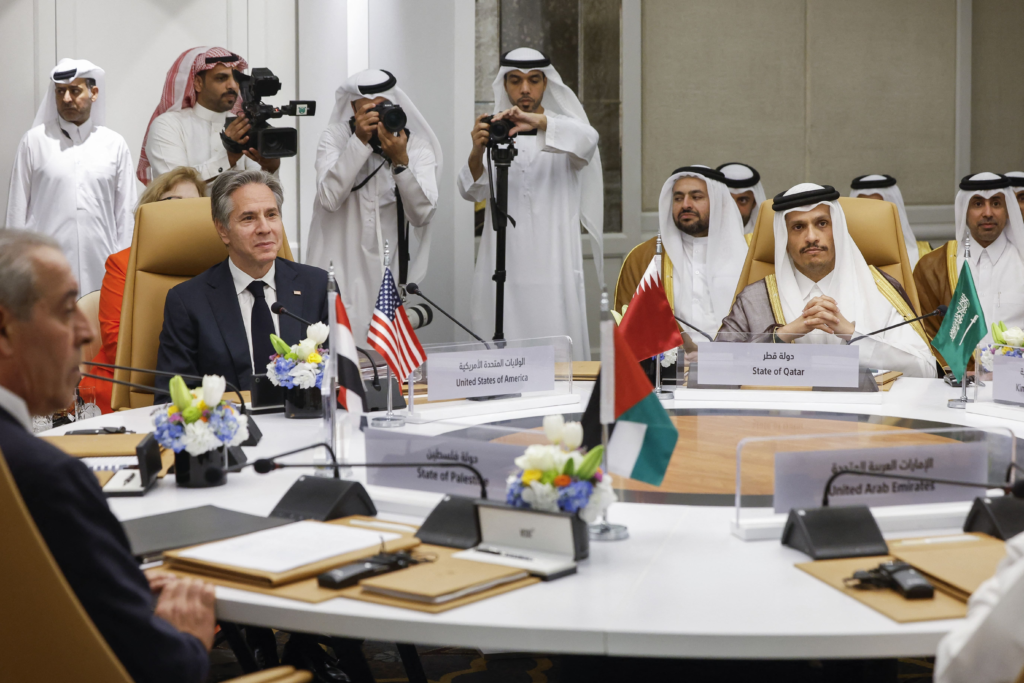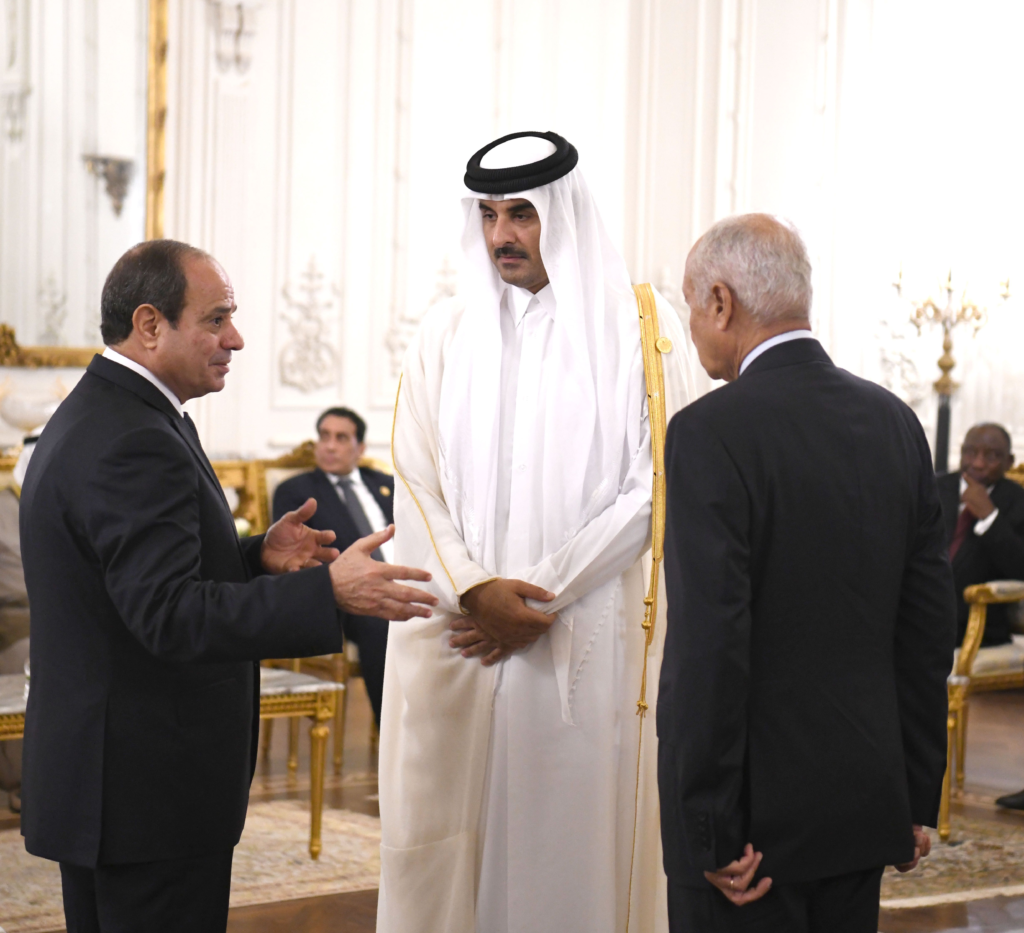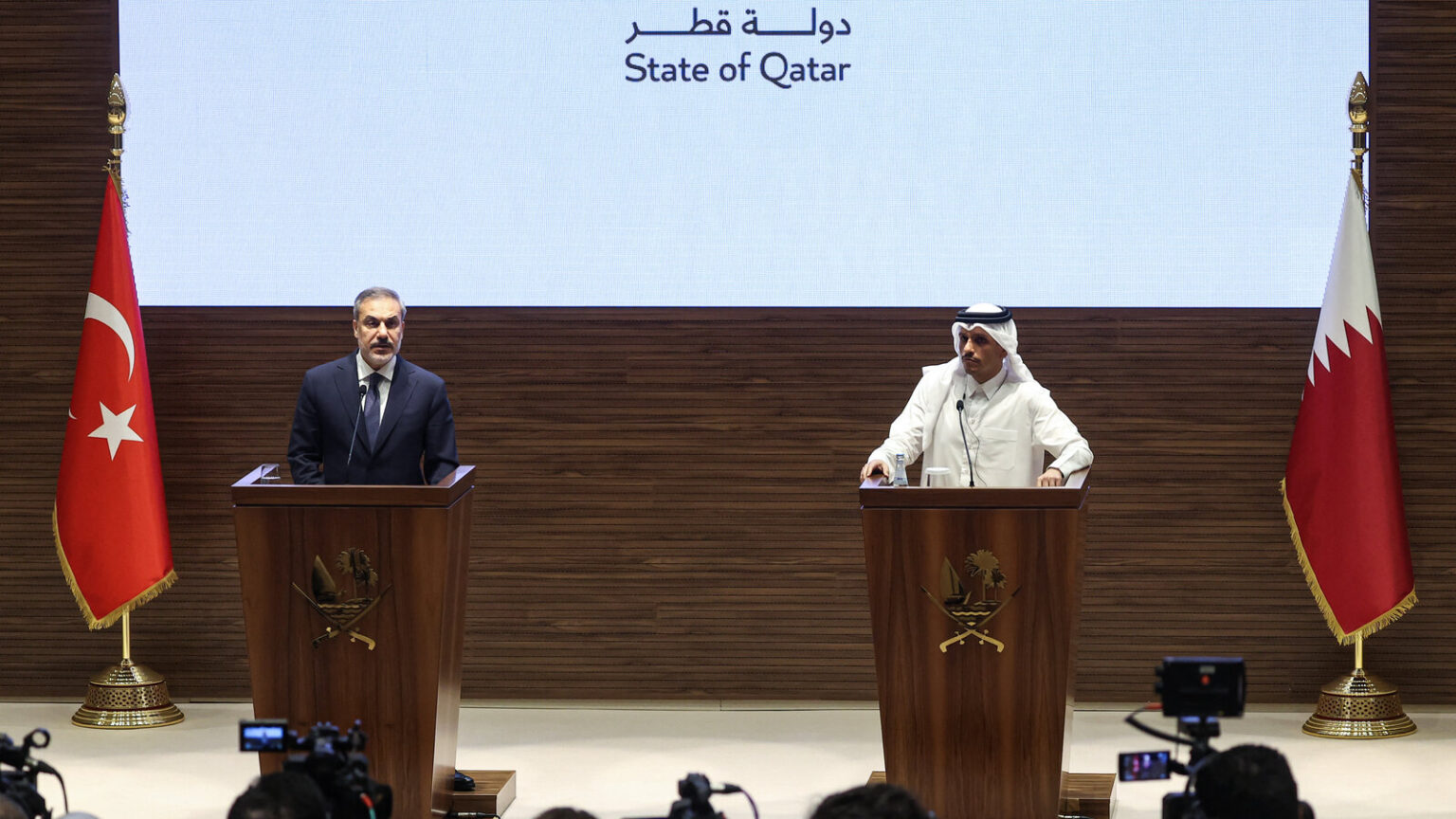Qatar hosting ceasefire talks has once again put Doha in the spotlight as a trusted diplomatic hub in the Middle East. The indirect negotiations between Israel and Hamas have resumed in the Qatari capital, drawing attention from global powers including the United States. With tensions in Gaza continuing to escalate, this round of talks holds critical importance.
The process is being closely observed by international stakeholders, and now, U.S. President Donald Trump is scheduled to meet Qatar’s Prime Minister Sheikh Mohammed bin Abdulrahman al‑Thani in Washington. The meeting aims to add weight to the peace efforts and encourage progress in both the ceasefire discussions and the complex issue of hostage exchange.
Why Doha is Leading the Peace Efforts
Qatar hosting ceasefire talks is not new. For years, Qatar has played a key mediating role between conflicting parties in the Middle East. Doha’s neutral stance and strong diplomatic channels make it an ideal ground for confidential and sensitive negotiations.
In this specific round of negotiations, Qatari officials are facilitating indirect communication between Israeli representatives and Hamas leaders, with both sides refusing direct engagement. The presence of the U.S. administration in the discussions, especially through Trump’s involvement, signals a renewed focus on resolving the long-standing Gaza conflict.
Goals of the Qatar Talks
The current negotiations hosted in Doha aim to accomplish three critical goals:
- Reach a Temporary Ceasefire in Gaza to halt escalating violence.
- Establish Conditions for a Long-Term Truce, potentially leading to political dialogue.
- Secure a Hostage Exchange Deal between Israel and Hamas.
Each of these goals comes with its own set of challenges, but diplomats believe that if even one objective is met during these talks, it could lead to long-term progress.

U.S. Reinforcement: Trump’s Strategic Visit
In a significant move, U.S. President Donald Trump is set to host Qatar’s Prime Minister in Washington. The meeting comes as the U.S. attempts to restore stability in the region and regain trust as a peacemaker. Trump’s decision to personally support Qatar hosting ceasefire talks underlines how critical the situation has become.
Analysts suggest this could also be part of a broader American strategy to reshape its foreign relations in the Middle East, especially as tensions rise in other nearby regions. Qatar’s diplomatic credibility, paired with U.S. backing, may serve as a powerful combination for conflict resolution.
Hostage Negotiations: A Complicated Chapter
One of the key hurdles in Qatar hosting ceasefire talks is the issue of hostages. Hamas reportedly holds several Israeli civilians and soldiers, while Israel is accused of detaining hundreds of Palestinians, some without charges.
According to sources familiar with the matter, the proposed deal involves a phased release of hostages in exchange for a temporary truce and humanitarian aid access. However, both sides remain deeply suspicious of each other’s intentions.
Despite these complications, Qatar continues to mediate cautiously, providing security and privacy for all parties involved.
Israel’s Conditional Participation
While Israel remains cautious about any long-term arrangement involving Hamas, officials have privately indicated that a short-term truce may be possible if it includes firm guarantees of border control and weapons monitoring.
Israeli representatives, though not directly present in Doha, are participating through third-party channels. The fact that they are engaged at all is seen as a step forward, considering past failed negotiations.

Hamas’s Demands and Stance
Hamas, on the other hand, is demanding international guarantees that Israel will stop airstrikes on civilian areas and allow the flow of medical and food aid into Gaza.
The group has also pushed for the lifting of some trade restrictions and prisoner releases. While their demands are seen as steep, sources say they may be open to phased negotiations if the first round sees progress.
Qatar’s Growing Role as a Diplomatic Leader
Qatar hosting ceasefire talks is part of a larger pattern that highlights the nation’s growing influence. From hosting Taliban-U.S. talks to brokering regional trade disputes, Qatar has steadily built a reputation as a reliable mediator.
Its foreign policy strategy is focused on conflict resolution, humanitarian aid, and maintaining open diplomatic lines with countries on all sides of a conflict.
Challenges Ahead
Despite the momentum, experts caution that Qatar hosting ceasefire talks may not yield quick results. The deep-rooted mistrust between Israel and Hamas is a major obstacle. Additionally, outside pressure from other regional powers could influence the negotiation’s direction.
Security threats, media leaks, and political instability on both sides remain concerns. However, Doha’s steady diplomacy and the U.S. support could act as stabilizing forces.
What’s Next?
As the talks continue, all eyes will be on the upcoming Trump-Al Thani meeting in Washington. If the two leaders can agree on a joint framework for continued dialogue, it may pave the way for more structured negotiations and even formal peace discussions.
For now, the world waits to see whether the Qatar-hosted talks can bring even temporary relief to the war-torn region of Gaza.
Summary
Qatar hosting ceasefire talks is a bold attempt to restore peace between Israel and Hamas. With U.S. President Trump personally stepping in to meet the Qatari Prime Minister, the talks are gaining global attention. The key focus remains on establishing a temporary ceasefire, arranging hostage exchanges, and initiating steps toward long-term peace. Although challenges are immense, Qatar’s consistent diplomatic efforts offer a glimmer of hope in an otherwise tense situation.
Do follow Gulf Magazine on Instagram
Also Read – Oman Türkiye Energy MoU Sparks $500M Strategic Investment Boost



